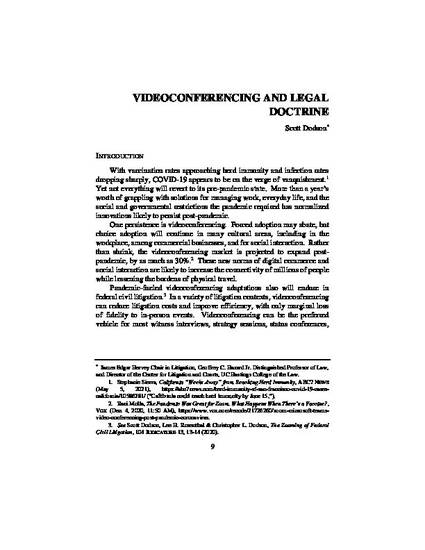
Article
Videoconferencing and Legal Doctrine
51 Southwestern Law Review 9
(2021)
Abstract
Enduring post-pandemic reliance on, and normalization of, videoconferencing in federal civil litigation and throughout society and commerce ought to have downstream effects on legal doctrines that depend upon contacts, burdens, and conveniences. Videoconferencing facilitates interstate contacts while mitigating burdens and costs associated with litigation in distant or otherwise geographically inconvenient forums, a fact that should broaden the reach of personal jurisdiction and influence venue transfer. The use of videoconferencing also should make certain discovery, like nonparty depositions, easier, quicker, cheaper, and more convenient—and therefore less objectionable. In this symposium essay, I consider the impact of normalized videoconferencing on these procedural doctrines. I begin by setting out the pandemic lessons for the use of videoconferencing technology in commercial, social, and litigation contexts, and I forecast its persistence post-pandemic. I then turn to various legal doctrines based on burdens and conveniences—including subpoenaed depositions, personal jurisdiction, and venue transfer—and I argue that videoconferencing will change the way these doctrines should be applied to post-pandemic civil litigation.
Keywords
- videoconferencing,
- videoconference,
- personal jurisdiction,
- venue,
- subpoena,
- discovery,
- cost,
- pandemic
Disciplines
Publication Date
2021
Citation Information
Scott Dodson. "Videoconferencing and Legal Doctrine" 51 Southwestern Law Review 9 (2021) Available at: http://works.bepress.com/scott_dodson/75/
